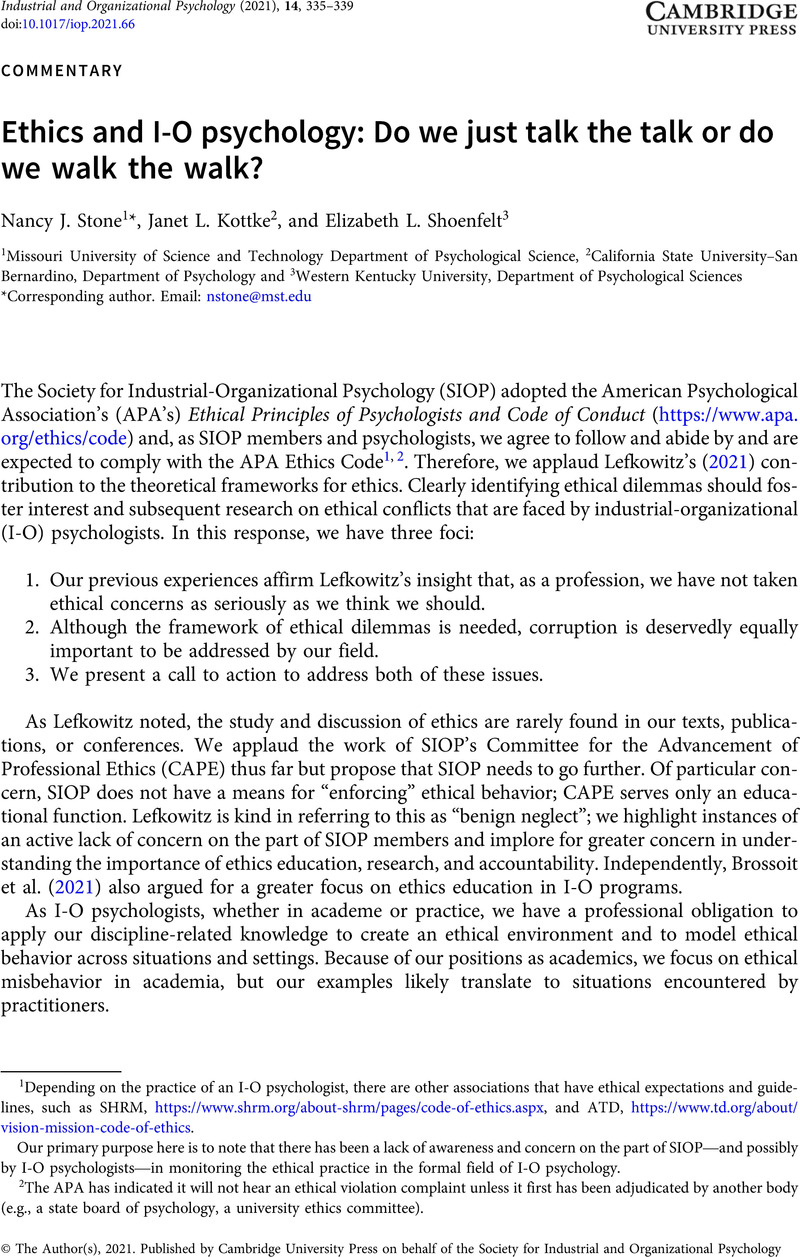Crossref Citations
This article has been cited by the following publications. This list is generated based on data provided by Crossref.
Shoenfelt, Elizabeth L.
Kottke, Janet L.
and
Stone, Nancy J.
2022.
Increasing the saliency of ethical decision making for SIOP members.
Industrial and Organizational Psychology,
Vol. 15,
Issue. 2,
p.
241.



